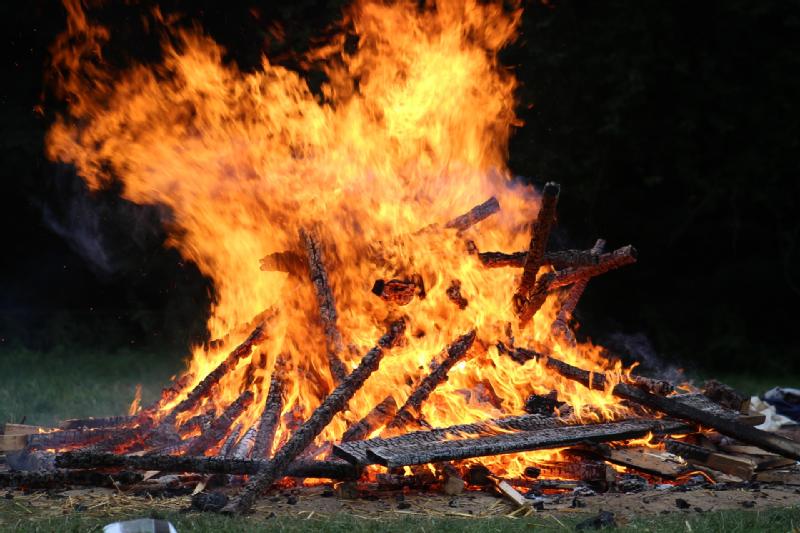
Which? Trusted Traders on what you can burn on a bonfire
Which? Trusted Traders, which currently provides BALI members with a heavy discount on membership as a service benefit, has published advice if you are planning to host a bonfire event. With bonfire night coming up, Which? has outlined some of the key ways in which to enjoy your night safely.
The Gunpowder Plot of 1605 still provides UK residents with the perfect excuse to host a traditional bonfire party over 400 years later. If you are going to celebrate the 5 November at home, stay safe and follow Which?'s tips on what you can and cannot burn on your bonfire. There is no law in the UK that specifically bans bonfires in gardens, even in smoke-free zones. But there are laws against causing a public or statutory nuisance, and some restrictions that you need to be aware of before you set light to that pile of rubbish in your back garden.
If smoke makes its way on to a public highway, it can be classified as a criminal offence in some circumstances and you could be fined. Regularly burning material on your own property could also be deemed a nuisance by the council, if it causes problems for your neighbours. Your council could issue you with an abatement notice.
What to burn on your bonfire
A lot of household and garden waste can be safely recycled or composted rather than burned. Contact your local council for more details. You should try to avoid burning large amounts of packaging, leaves or soft clippings that can be easily composted, or items that are easy to recycle, such as newspapers.
A bonfire is ideal for burning untreated wood that is not suitable for use on an indoor stove or fire. Ensure any wood you burn is free from metal objects such as nails or staples. These can be dangerous; as the fire heats up, they could fly out and hit unsuspecting bystanders.
Any wood you burn should be dry and untreated. Wet wood can explode as it burns, collapsing your bonfire and posing a risk to bystanders. Softwoods such as pine, spruce, alder or cedar will light easily and burn more quickly than hardwoods such as eucalyptus, alder, oak or citrus.
Stick to burning dry material, in particular, garden waste such as:
- untreated wood
- rose prunings
- brambles
- hedge clippings
- weeds such as bindweed, couch grass or ground elder
- holly leaves
- yew trimmings.
What not to burn on your bonfire
It is a criminal offence to get rid of domestic waste in a way that could cause pollution or harm to human health. Burning plastic, rubber and painted materials releases toxic smoke, so should be avoided at all costs.
You should never burn:
- aerosol cans
- batteries
- fireworks
- foam furniture
- general household rubbish
- glass
- mattresses
- metal
- paint tins
- plastic
- rubber
- treated wood
- tyres
Be considerate with your bonfire
Think about where your bonfire is located. How much smoke will it create and where will that smoke go?
- Ensure you locate your bonfire where smoke is unlikely to bother your neighbours
- Avoid burning waste when people are likely to have their windows open
- Avoid windy days when smoke is more likely to drift
- Avoid damp, still days when smoke is likely to linger
- Do not burn material when air pollution is already high, as this could create difficulties for people with asthma or other respiratory problems
Safety advice for bonfires
It is also important to pay attention to basic safety advice.
- Before lighting your bonfire, check it for small animals that may have used it as a shelter
- Ensure that the bonfire is not located too close to your house, garden shed, fence or hedge. Avoid placing it too close to low-hanging trees or plants, underneath power lines or close to flammable walls
- Remove any rubbish from the bonfire area, so it’s not possible for someone to throw it on later
- Never use petrol, paraffin or other flammable liquids to help light or encourage the fire. This can lead to an explosion or uncontrolled spread of the fire
- Always keep a bucket of water or a hosepipe handy
- Never leave bonfires unattended. You should supervise them until they are fully burnt out. If you must leave one, damp it down with plenty of water
